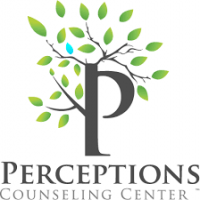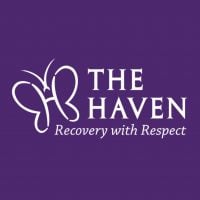
Perception Counseling
Drug Rehab Center in Tucson, Arizona
- Opioid Addiction
- Dual Diagnosis
- Drug Addiction
- Alcoholism
Perception Counseling is a CARF-accredited counseling and psychotherapy practice in Tucson, Arizona offering evidence-based treatment for addiction, as well as mental health and holistic therapies to empower individuals and families dealing with substance abuse.
About Perception Counseling in Arizona
Perception Counseling in Tucson, Arizona is a counseling and psychotherapy practice dedicated to providing a holistic approach to addiction and substance abuse. Their team of professionals use personalized treatment plans to assist individuals in achieving long-term recovery and successful reintegration. Their client-centered services emphasize empowerment, resilience, and self-sufficiency, as well as involving family members in the treatment process. They offer individual and group counseling, as well as family counseling and outpatient treatment services.
Perception Counseling provides evidence-based treatment for addiction, including cognitive behavioral therapy, dialectical-behavioral therapy, motivational interviewing, and trauma-informed therapy. They also offer medications, nutrition assessment and counseling, supportive therapy, and relapse prevention planning. In addition to the traditional Addiction Treatment Services, Perception Counseling also provides Mental Health, Wellness Education, and other holistic therapies to help individuals and families who are dealing with substance abuse.
Perception Counseling is accredited by the Commission on Accreditation of Rehabilitation Facilities (CARF). They are also licensed through the Arizona Department of Health Services, and are committed to the highest standards of care and ethics. They have received numerous awards for their outstanding treatment, and have built a reputation as one of the leading substance abuse treatment centers in Tucson, Arizona.
Genders
Ages
Modality
Additional
Conditions and Issues Treated
With so many people addicted to opioids, we need to help those who want to quit. The cycle begins when opioid addicts take opioids for a painful injury. When someone starts taking their medication differently or in excess, it means they’re addicted and at risk of overdosing.
In , detoxing from these types of treatments is the most effective way to beat this. Most facilities begin with medical assistance and then provide counseling services; rehabilitation follows after successful treatment.
Dual diagnosis refers to someone who has both an addiction and a mental or emotional illness. Dual diagnosis treatment includes therapy for both issues simultaneously, allowing for effective treatment of either.
Sometimes people with addiction disorders also have co-occurring disorders like depression, anxiety, bipolar disorder, etc. These require specialized treatment programs that address both drug and alcohol addiction as well as psychiatric illnesses. Some rehabilitation facilities provide patients with co-occurring disorders a program with highly integrated services and a clean, distraction-free environment.
Levels of Care Offered
This center offers a variety of custom treatment tailored to individual recovery. Currently available are Detox, Drug Rehab, Dual-Diagnosis, Intensive Outpatient, Outpatient, with additional therapies available as listed below.
Detox is an integral part of recovery and often very hard. Detoxification is the process of letting the body remove the drugs in it. It addresses the physical aspect of addiction. Detox from drugs can be unsafe as the patient undergoes withdrawal symptoms that range from headaches, vomiting, body aches to seizures and cardiac arrests. The main purpose of detox is to keep the drug users comfortable as the drugs leave their system.
Quitting cold turkey is not recommended and can lead to many issues. Detox is best done under medical supervision so that a team of experts can monitor the side effects and complications. Detox, alone, does not guarantee sobriety as the underlying psychological issues are not addressed.
An intensive outpatient program (IOP) is effective for drug rehab, but it can take six months to several years to complete. It’s the most popular type of drug rehab program in the United States. One example of a successful IOP success story is actor and comedian Chris Rock, sober since 1990.
An IOP allows participants to spend nights at home while attending meetings throughout the day. It’s a good way for drug addicts to make a recovery plan in an outpatient setting while still supporting their loved ones.
Alcohol or drug addiction, or co-occurring disorders, are treated in an outpatient program. The patient must attend therapy and other programs at the facility but can return home each night.
Outpatient treatment allows recovering addicts to live at home while receiving addiction treatment. Outpatients can attend group sessions for a few hours per week. Outpatients may also continue to work full time and study/attend school without interruption if they choose.
Therapies & Programs
Attending group therapy at Perception Counseling in , is a useful way for those seeking sobriety to realize they aren’t the only one going through it.
This is when a group of people on different recovery phases get together and talk about what they’re going through, their triggers, successes, and failures. This can include alternative types of therapies too! Group therapy may occur on an outpatient or inpatient basis with groups that have no pre-existing relationships outside the session, unlike support groups where everyone already knows each other beforehand.
Trauma therapy is a form of therapy used to help people process and understand past traumas. This can help struggling addicts, as many people turn to drugs or alcohol to mask the pain of their past. Trauma therapy can be done in several ways, such as through visualization, discussion, and writing down thoughts and feelings. The goal is to help the individual understand why they are having problems coping with certain situations and changing how they think and react to things. This is often done in tandem with other therapies to treat the underlying issues associated with addiction.
The idea behind trauma therapy is that while some people can experience traumatic events and not have lasting psychiatric symptoms, many others will. In these cases, memories get hidden from consciousness but continue to influence how the person processes and copes with things in their life. They may avoid situations that resemble what happened or become suddenly angry or irritated to a situation that reminds them of a past event. With the help of a therapist, people can go back over memories and experiences. This helps them understand why they are having problems coping with certain situations and changing how they think and react to things.
Payment Options Accepted
For specific insurance or payment methods please contact us.
Additional Details
Specifics, location, and helpful extra information.
Tucson, Arizona 85701 Phone Number(520) 623-7077 Meta DetailsUpdated November 25, 2023
Staff Verified
Perception Counseling Patient Reviews
There are no reviews yet. Be the first one to write one.
Tucson, Arizona Addiction Information
Arizona has some of the highest rates of prescription drug abuse in the United States. Methamphetamines, heroin and morphine are among the most commonly abused substances. Prescription pain relievers were prescribed to 348 million people in 2012, enough to medicate every adult in Arizona for 2 full weeks. The number of people with substance use disorders in Arizona has remained relatively constant over the past few years.
In Tucson, Arizona, drug addiction is a serious issue. In fact, according to recent statistics, there are over 15,000 people in the city who are addicted to drugs. This accounts for about 5% of the population. Tucson's most commonly abused drugs include heroin, methamphetamine, and cocaine. In Tucson, Arizona, the types of treatment available include inpatient rehabilitation, outpatient rehabilitation, and 12-step programs.
Treatment in Nearby Cities
- Camp Verde, AZ (169.5 mi.)
- Huachuca City, AZ (55.8 mi.)
- Apache Junction, AZ (88.8 mi.)
- New River, AZ (134.9 mi.)
- Tucson, AZ (0.3 mi.)
Centers near Perception Counseling



The facility name, logo and brand are the property and registered trademarks of Perception Counseling, and are being used for identification and informational purposes only. Use of these names, logos and brands shall not imply endorsement. RehabNow.org is not affiliated with or sponsored by Perception Counseling.


